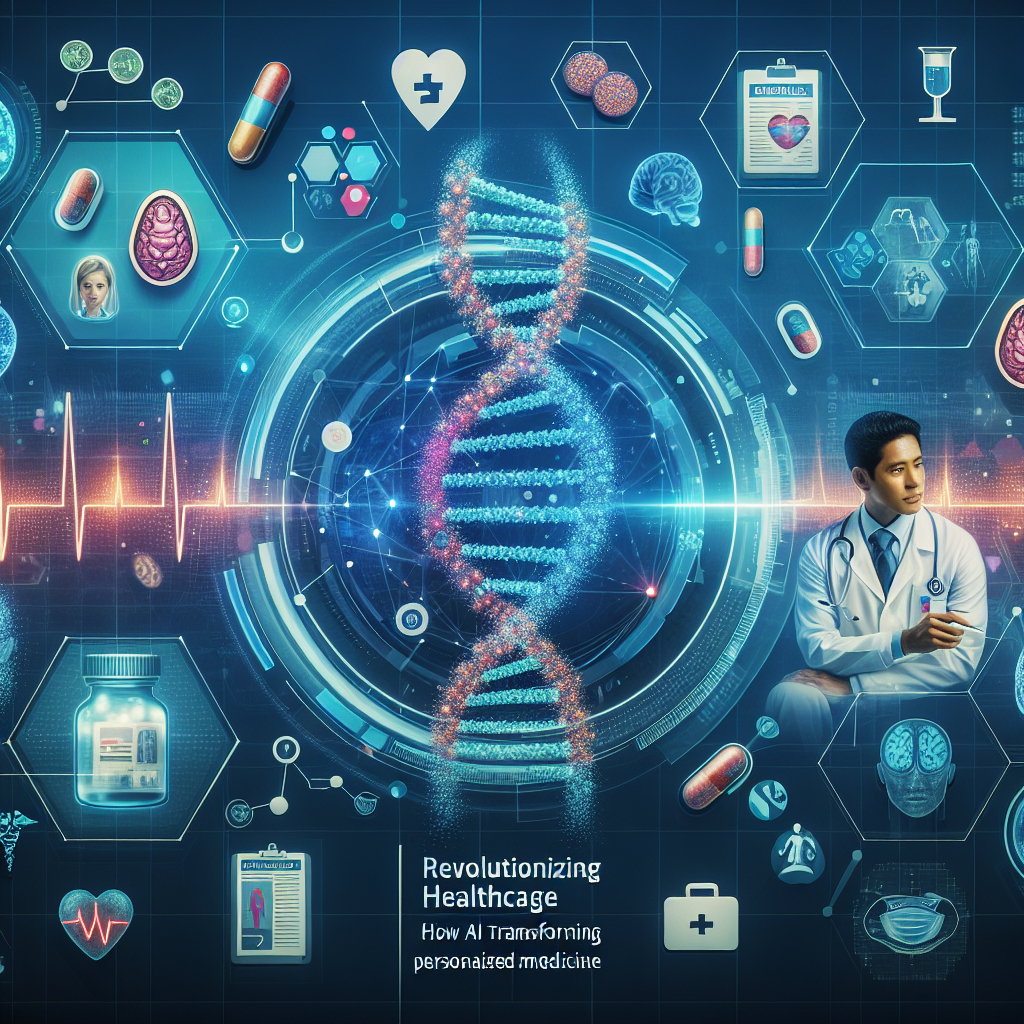Revolutionizing Healthcare: How AI is Transforming Personalized Medicine
In recent years, artificial intelligence (AI) has made significant strides in revolutionizing the healthcare industry. From improving patient outcomes to streamlining operations, AI has shown enormous potential in transforming personalized medicine. With the ability to analyze vast amounts of data and provide tailored treatment plans, AI is changing the way healthcare is delivered and shaping the future of personalized medicine.
Personalized medicine, also known as precision medicine, is a healthcare approach that considers individual variations in genes, environment, and lifestyle when designing treatment plans. By taking into account a patient’s unique characteristics, personalized medicine aims to provide more effective and targeted therapies while minimizing adverse effects.
AI plays a crucial role in enabling personalized medicine by leveraging advanced algorithms and machine learning techniques to analyze complex data sets. By processing information from genetic profiles, medical histories, and lifestyle factors, AI can identify patterns and correlations that human researchers may overlook. This analytical power enables AI to develop personalized treatment plans that are tailored to each individual’s needs and genetic makeup.
One of the key areas where AI is making a significant impact in personalized medicine is in the field of genomics. By analyzing genetic data, AI can identify genetic variations that may predispose individuals to certain diseases or influence their response to specific treatments. This information can help doctors make more informed decisions about which medications or therapies are most likely to be effective for a particular patient, leading to better treatment outcomes.
AI is also being used to develop predictive models that can help identify patients who are at risk of developing certain conditions. By analyzing data from electronic health records, wearable devices, and other sources, AI can identify early warning signs of diseases such as diabetes, cancer, and heart disease. This early detection allows healthcare providers to intervene proactively and implement preventive measures to reduce the risk of disease progression.
Furthermore, AI is improving the efficiency of healthcare delivery by automating repetitive tasks and optimizing workflow processes. By using AI-powered algorithms to analyze medical images or lab results, healthcare providers can quickly and accurately diagnose conditions, leading to faster treatment decisions. AI can also help streamline administrative tasks such as scheduling appointments, processing insurance claims, and managing medical records, freeing up healthcare professionals to focus on patient care.
Despite the tremendous potential of AI in personalized medicine, there are still challenges and limitations that must be addressed. One of the biggest concerns is the accuracy and reliability of AI algorithms, as errors or biases in the data used to train these models can lead to incorrect predictions or treatment recommendations. Additionally, there are ethical considerations regarding patient privacy and consent, as the use of AI in healthcare raises concerns about data security and the potential misuse of personal information.
Another challenge is the need to ensure that AI technologies are accessible and affordable for all patients, regardless of their socioeconomic status. As AI becomes increasingly integrated into healthcare systems, there is a risk of widening health disparities if certain populations do not have access to cutting-edge technologies. It is essential for policymakers, healthcare providers, and AI developers to work together to ensure that AI is used in a way that promotes equity and fairness in healthcare delivery.
FAQs
Q: How is AI being used in personalized medicine?
A: AI is being used to analyze genetic data, develop predictive models, and optimize treatment plans based on individual characteristics. By harnessing the power of AI, healthcare providers can deliver more targeted and effective therapies to patients.
Q: What are the benefits of AI in personalized medicine?
A: AI can improve treatment outcomes, enhance early detection of diseases, and streamline healthcare delivery processes. By leveraging AI technologies, personalized medicine can help patients receive better, more personalized care.
Q: What are the challenges of implementing AI in personalized medicine?
A: Challenges include ensuring the accuracy and reliability of AI algorithms, addressing ethical concerns about data privacy, and promoting equitable access to AI technologies for all patients. It is essential for stakeholders to work together to overcome these challenges and harness the full potential of AI in personalized medicine.
In conclusion, AI is revolutionizing healthcare by transforming personalized medicine and improving patient outcomes. By leveraging advanced algorithms and machine learning techniques, AI can analyze complex data sets and develop tailored treatment plans that are uniquely suited to each individual’s genetic makeup and needs. While there are challenges and limitations to the use of AI in personalized medicine, the potential benefits are enormous, paving the way for a more personalized, efficient, and effective healthcare system. It is essential for stakeholders to work together to address these challenges and ensure that AI is used in a way that promotes equity, fairness, and improved patient care.
